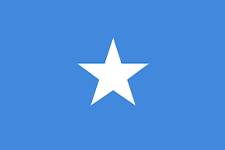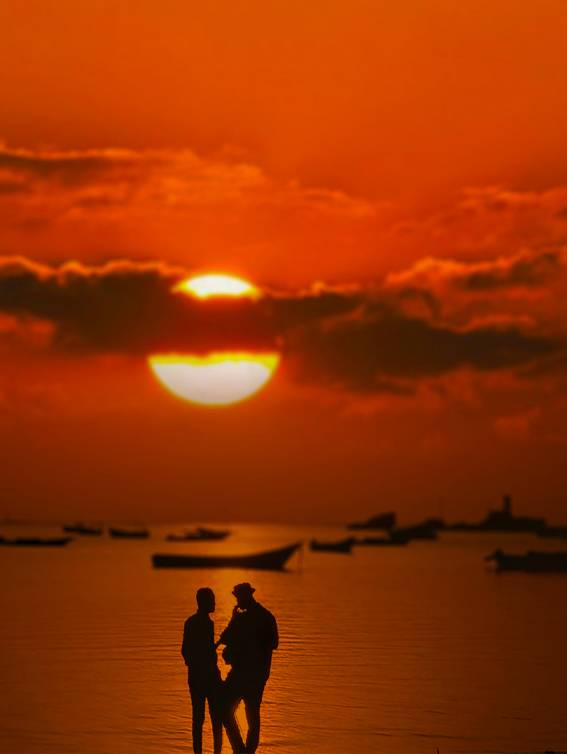SOMALIA
Soo dhawow" (سو دهوو) - Welcome
In Somalia we provide international relocations by sea and air, local moves, office moves and can also handle pets. We also provide an essential import and export service by sea and air, for international AID agencies.
OUR TEAM
Worldwide Movers Africa (Somalia) was established by Omar in one of our most challenging locations. From here Omar provides clients with our highly valued Gold Standard level of service.
Founded on customer service, hard work and dedication.
Our team are knowledgeable, experienced and have extensive removal skills. We have comprehensive export/import, freight and customs formalities abilities.
Our team attend annual workshops and overseas conferences with agency network partners. We are proud of our reputation as Africa’s Gold Standard of the relocation industry.

Omar Duale
Director
Omar lives in Hargeisa with his family and operates both the Somalia and Somaliland businesses from there. He is well travelled, highly respected and has excellent networks in the region.

COUNTRY PROFILE

Population: Approximately 15 million people
Capital: Mogadishu
Language: Somali (official language), Arabic and English are also widely used
Political System: Federal parliamentary republic
GDP (Gross Domestic Product): c. $11.25 billion
GDP per Capita: Approximately $717
Currency: Somali Shilling (SOS)
Somalia, in the Horn of Africa, with the Indian Ocean to the east, has a predominantly ethnic Somali population, the majority being Sunni Muslim. It gained independence from Italian and British colonial rule in 1960.
Somalia has a rich historical heritage of ancient city-states and empires. Its culture is rich in poetry, storytelling, and traditional music. Nomadic heritage has played a significant role in shaping Somali culture.
Somalia's economy has faced serious challenges due to decades of conflict and political instability. It has faced humanitarian challenges, including droughts and famines, which have led to displacement and food insecurity. There is a significant Somali diaspora around the world as many Somalis have sought refuge in other countries. Livestock, foreign remittances, and telecommunications are significant contributors to the economy. The country has vast potential in agriculture, fisheries, and natural resources.
Somalia gained international attention due to piracy off its coast, particularly in the waters of the Gulf of Aden and the Indian Ocean. International efforts have been made to combat piracy.

FURTHER INFORMATION
Transport can vary significantly depending on the region and security conditions.
In major cities like Mogadishu and Hargeisa, often crowded but affordable, public buses and minibuses provide for intra-city services.
Taxis can be hailed on the street or booked with phone apps. They are comfortable and convenient but fares may need to be negotiated.
Bajaj, tuk-tuks, are three-wheeled taxis used for short-distances. They are often cheaper than normal taxis and can get through narrow streets more easily.
Some residents and visitors in Somalia prefer to hire private cars or drivers for transportation, especially for longer journeys or when traveling to remote areas.
Motorcycles are used particularly in smaller towns and rural areas. They are a good way to get through traffic, but safety precautions should be taken.
Jubba Airways and Daallo Airlines operate domestic flights operate between major cities and towns.
In coastal areas and along rivers, boats and ferries provide access to islands, coastal towns, and fishing communities.
Infrastructure in Somalia is limited, especially in rural areas, and road conditions can vary. Security concerns and travel advisories may impact options in certain regions. Travellers should be cautious and stay informed about local conditions.
Mogadishu has been severely affected by conflict but certain heavily fortified compounds and residential areas are occupied by diplomats, aid workers, and international organizations. These areas are often located close to the airport and are heavily guarded.
Hargeisa, the capital of the self-declared Republic of Somaliland, is relatively safer compared to other parts of Somalia. Expatriates, including diplomats, aid workers, and business professionals, may reside in secure compounds or neighbourhoods within the city.
Bossaso, in the autonomous Puntland region, is a major port city and economic hub in northeastern Somalia. While security conditions vary, there are areas where expatriates, particularly those involved in maritime trade and logistics, may live.
Galkayo, in central Somalia, is another city where expats in humanitarian aid organisations or development projects might live. Security conditions in Galkayo can be volatile, and expatriates typically reside in heavily guarded compounds.
International Camps and Compounds: Expats often live in secure international camps or compounds provided by their organisations. They typically have strict security measures and amenities such as accommodation, dining facilities, and recreational areas.
Security remains a significant concern throughout Somalia. Expats adhere to strict security protocols and guidelines established by their organisations use security escorts when travelling outside secure areas. Conduct thorough risk assessments and seek advice from security experts and local authorities.
Due to political instability and security concerns, expatriates and international communities in Somalia often rely on homeschooling or may send their children to local private schools that cater to the needs of the expatriate community. It is advisable to contact local embassies and consulates and local expatriate communities.
Generally when looking for international schools look for those that follow recognised curricula, such as the International Baccalaureate (IB) or British or American educational systems.
Ensure that the schools are accredited by relevant educational authorities or international accreditation bodies.
Consider the curriculum offered by the school and whether it aligns with your child's educational needs and future plans.
Check the school's facilities, resources, and extracurricular activities to ensure a well-rounded education.
Please contact our office for details of reputable real-estate companies. Aim for accommodation and schooling within a sensible commute!
Staying safe in Somalia requires careful consideration of the security situation, as the country has faced political instability and security challenges. While the security environment can vary across different regions, here are some general safety tips for those living or travelling in Somalia:
Stay Informed: Keep yourself informed about the current security situation in the region you are in. Monitor local news, government travel advisories, and security alerts.
Embassy and Consulate Contacts: Be aware of the location and contact information of your country's embassy or consulate in Somalia. Register with your embassy or consulate to receive updates and assistance in case of emergencies.
Local Advice: Seek advice from local residents, expatriates, and other reliable sources about safe areas and potential risks in the region.
Avoid High-Risk Areas: Avoid travel to areas with a high risk of insecurity, including regions with ongoing conflict, civil unrest, or terrorism concerns.
Secure Accommodations: Choose secure and reputable accommodations. Hotels with security measures in place may provide a safer environment.
Travel in Groups: Whenever possible, travel in groups rather than alone. This can enhance your safety, especially in unfamiliar areas.
Limit Night Travel: Avoid traveling at night, as visibility may be reduced, and security risks may increase.
Communication: Stay connected with family, friends, or colleagues. Share your travel plans and check in regularly.
Emergency Preparedness: Have an emergency plan in place, including knowing the location of the nearest medical facilities and emergency services.
Cultural Sensitivity: Respect local customs and cultural norms. Understanding and respecting the local culture can contribute to a safer and more positive experience.
Local Authorities: Comply with the instructions of local authorities and law enforcement. Be aware of and follow any curfew or security measures in place.
Secure Transportation: Use reputable transportation services. Ensure that vehicles are well-maintained and have security features.
Medical Precautions: Take necessary health precautions, including vaccinations and obtaining travel health insurance.
The security situation in Somalia can change rapidly, consult with official sources and exercise caution at all times. If you are planning to travel to Somalia or reside there, seek advice from diplomatic missions, security experts, and other reliable sources for the most up-to-date and accurate information.

FAQS
Moving costs are based on factors such as:
The volume and weight of your belongings
Whether your belongings are being shipped by air, sea or road (or a combination)
Your origin and destination
Any special requirements you have such as crating for art work
Ease of access to your property
Additional services requested
Please provide our surveyor and operations manager with as much information as possible.
We use the assessment made by our surveyor and the information you provide to calculate your quote.
As each move is unique our service usually begins with a survey. Our surveyor will estimate the volume of goods to be shipped and the materials needed. He will listen carefully to any special instructions or requests you may have. He will also make an assessment of the property checking for any access issues (narrow gates or height restrictions) and look at lift access and staircases.
We have teams of highly experienced professional packers
We use high quality and appropriate materials to protect and pack your belongings
* You should not pack your own belongings
Many countries will not allow entry of goods that have been packed by their owners (PBO). This ensures no prohibited items are shipped with your belongings.
Any boxes labelled PBO are very likely to be opened and searched by customs officials
Our teams will produce a detailed packing list which they will ask you to sign
We do not ship prohibited goods, such as:
Ivory or furs, drugs, weapons, hazardous materials or perishable items.
Each location has its own export and import regulations. Our teams will be able to advise.
We do not pack keys or passports (you will need those)
It is recommended that you carry any small high value items, such as jewellery, rather than having it shipped with your goods
Your normal household insurance is unlikely to cover your goods in transit.
We offer protection cover for your move including marine insurance.
Your shipment may be insured by your origin agent if you are importing your goods to us.
It is very important that you complete a detailed valued inventory of your goods as one box may contain items of much greater value than another.
Please read our terms and conditions for information on liability.
It helps if you are organised.....
Make sure you have applied for any visas or permissions you will need and have your passports up to date and ready
Dispose of or sell any items you do not wish to take
Separate items to be shipped from those to remain
Separate items to be shipped by air and those to be shipped by sea (if appropriate)
Label or attach stickers to the items to be packed
Organise school books or your children's much loved toys
From start to finish the entire moving process has a number of steps:
Survey - please book your survey as far in advance as is practical
Quote - once your survey is done our team will contact shipping line and destination agents. Once all this information is in and collated we can provide you with a quote/estimate.
PLEASE NOTIFY US OF ANY CHANGES
Packing dates - we can be very busy especially at peak packing time in the summer months. We will always aim to pack on or close to your preferred dates when possible
Transport to port
Export clearing
Loading onto shipping vessel
Transit by sea or air - this can take a day to several weeks. We can give an estimated time of arrival (ETA) to help you with planning. However, many things affect the transit time and are out of our control: technical issues, weather, international incidents, port congestion etc. Your shipment is tracked and the ETA adjusted accordingly.
Offloading from the vessel
Import clearing
Transport to storage or your new home
Unpacking and debris removal
We will provide you with a comprehensive and detailed quote for our services which should highlight any exclusions.
DUTY AND TAX: Customs/import duty is imposed when people bring goods into a country. Duty can vary widely depending on the country and its specific customs regulations. Personal belongings and household goods are sometimes duty free or have a reduced rate. Exemptions or reductions may apply to some individuals, such as expatriates on short-term assignments and diplomats. Depending on the country there may be other taxes and levys charged on your shipment.
A customs declaration including a detailed inventory, packing list, and relevant identification documents is crucial for smooth customs clearance. Some countries may require additional documents, such as a visa, work permit, or proof of residence. We can provide guidance on the documentation required and potential duty implications.
DEMURRAGE: Demurrage is charged by a shipowner for any delay in loading/unloading a vessel or returning the container beyond the allowed free time. Delays can arise for many reasons including port congestion, customers not presenting the required paperwork on time etc
Free time is generally about 5 days for an air import and 7 days for a sea import (including weekends and holidays). Charges are calculated on a daily rate for each day beyond the free time.
We are unable to include demurrage charges in our quote as they vary. You, your origin agent or your company are usually responsible for paying demurrage. It is important for us to know who to contact so that they can be paid efficiently, the container is released and further unnecessary charges are not incurred.
OTHER
Inspections - Your shipment may be selected for inspection or X-Ray by officials for which there will be an additional fee.
Storage - We are able to store your household goods for you if for example your new home is not ready. We charge warehouse handling and storage for this service.
Handyman - We offer other services such as a handyman if you need other work such as putting up curtains, electrical work, assembly of IKEA furniture and so on....
Out of Hours - Additional may be incurred if you require us to work after hours, on weekends or public holidays.
International relocation of pets involves careful planning and adherence to regulations to ensure the safety and well-being of your furry friends.
We have moved many pets all over the world including USA, UK, many EU countries, New Zealand, Australia, Cyprus, Thailand, Singapore....
Pet import requirements and regulations vary and some countries have strict rules and timelines to which you must adhere.
Ensure that your pet has a compliant microchip registered with your contact information.
Visit your veterinarian well in advance and ensure your pet is up-to-date on all vaccinations required by the destination country. Give parasite treatments according to the regulations of the destination country. Obtain a health certificate issued by a licensed veterinarian shortly before travel.
An import permit may be required by the destination country. Obtain the necessary permits and ensure compliance with any waiting periods. Be aware of any quarantine requirements in the destination country.
You will need an IATA and airline-approved travel crate that provides enough space for your pet to stand, turn around, and lie down comfortably. Familiarise your pet with the crate before travel. Include familiar items like blankets or toys in the travel crate (but no choking hazards). Ensure access to water and any necessary medications during the journey.
We organise the door-to-door relocation of pets, from collection at your residence, booking with the airline, airport procedures and processing, arranging a destination agent and hand over or delivery to your new home. We select an airline we trust with experience in transporting pets. We consider the travel time, any transfers and their location so that we choose the best route for the comfort and safety of your pet/s. Some airlines have specific pet travel programs.
You will need to provide original copies of all your pets documents. We will also need your old and new address and contact information.
NB: Do not give your pet any sedative or calming medications/supplements - these can have devastating affects at altitude. We will refuse to ship your animal if we suspect it is sedated.
We can also relocate other animals and always adhere to regulations. If your pet is CITES listed you will need to provide the correct paperwork.
TESTIMONIALS
Dear Charles and William,
We would like to thank you, all of you, for the very good job you have done. Your team, this morning, was efficient and competent. We will have the pleasure to work with you again. Thank you very much.
Kindest regards Helene

Why Choose Us?
With over 30 years of experience on the African Continent, Worldwide Movers Africa has the knowledge and dedication needed to successfully move your belongings.
CONTACT SOMALIA
Contact Details
Email: omarduale@gmail.com
Tel: +252 252 0681 Mobile: +252 24 426 761
Office Address
Worldwide Movers Somalia (WWM Group)
Main Road
Hargaisa
Somalia





























